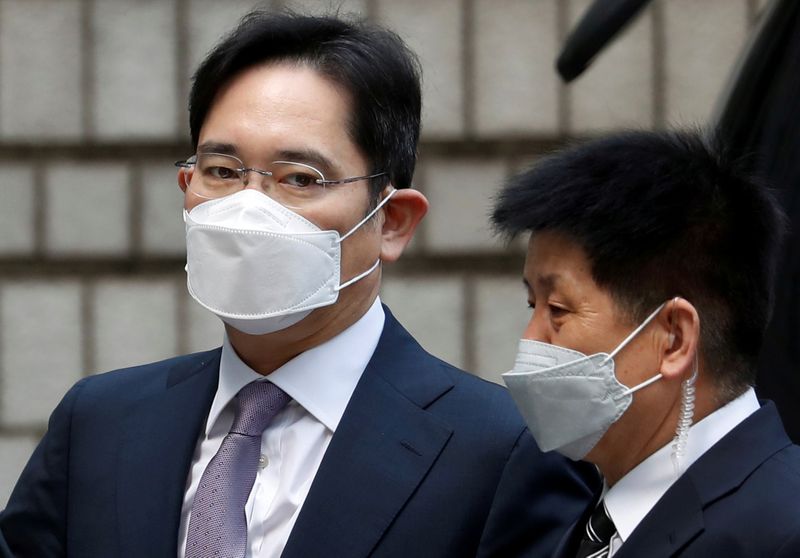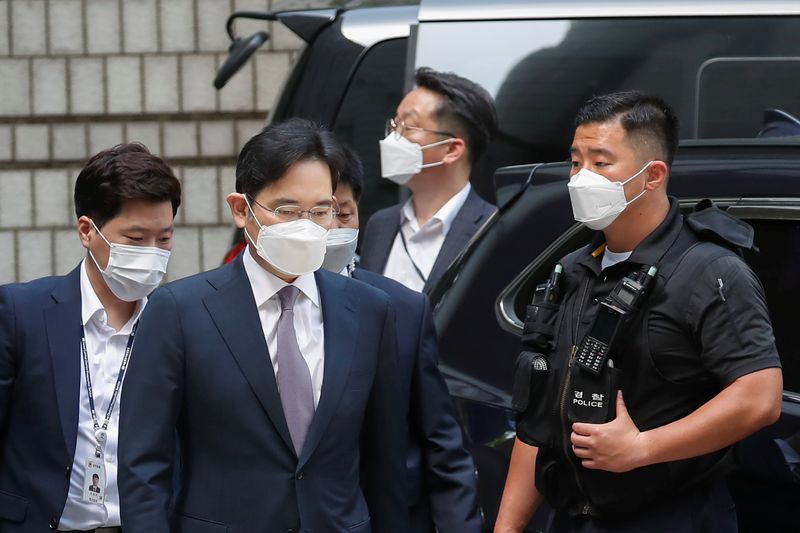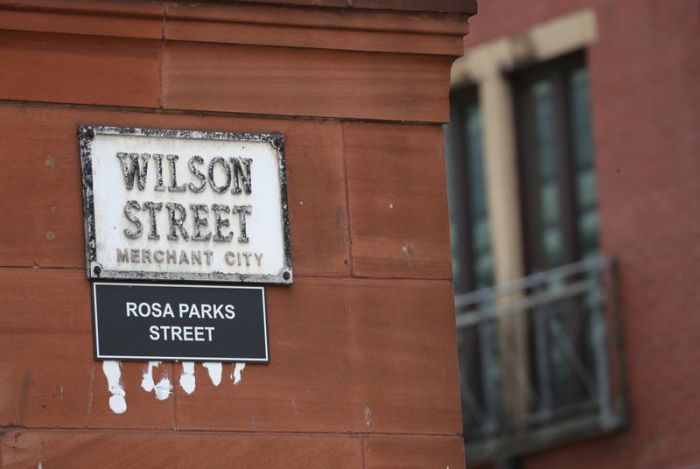SEOUL (Reuters) – A South Korean court on Tuesday denied an arrest warrant request for Samsung Group heir Jay Y. Lee after prosecutors accused him of accounting fraud and stock manipulation.
The ruling provided temporary relief for the vice chairman of Samsung Electronics. But he may face further pressure from the case at a time when the world’s top maker of smartphones and memory chips contends with the impact of the COVID-19 pandemic on demand.
Shares in Samsung Group affiliates rose broadly in early Tuesday trade, with Samsung Electronics rising 2%, Samsung BioLogics up 2.4%, and Samsung C&T climbing 2.2% compared to a 1.2% rise in the benchmark KOSPI.
Prosecutors last week asked the court to issue an arrest warrant for the 51-year-old Lee, as part of a probe into alleged accounting fraud involving a Samsung drugs affiliate and a 2015 merger of two other affiliates.
They said the fraudulent accounting, and alleged stock manipulation, helped facilitate Lee’s plan to assume greater control of the group.
“It appears that prosecutors have secured considerable amount of evidence through their investigation, but they fell short of explaining the validity to detain Lee,” the Seoul Central District Court said in a statement.
“Considering the significance of the case, it is appropriate to determine whether the suspects are responsible and the degree (of their involvement) through sufficient trials and debates,” the court said.
Prosecutors called the decision regrettable, saying their investigation would proceed nonetheless. They may decide to reapply for the arrest warrant request for Lee, after further investigation, or bring Lee to trial without arrest.
Lee’s attorneys said in a statement they hoped the case would get a thorough review from an outside panel that would decide whether or not an indictment of Lee was justified.
The allegations against Lee center on illegal transactions and stock manipulation that furthered the $8 billion merger of affiliates Samsung C&T Corp and Cheil Industries in 2015, according to prosecutors.
The merger was seen as key to Lee increasing control of the sprawling group but critics say it rode roughshod over the interests of minority investors.
Prosecutors also allege he had a role in inflating the value of Samsung Biologics Co Ltd, which counted Cheil Industries as a major shareholder.
Samsung has denied the allegations.
Lee was previously jailed for about a year, until his release in February 2018, for his role in a bribery scandal. He was accused of giving horses to the daughter of a confidante of former President Park Geun-hye to win government support for the merger of the two affiliates.
South Korea’s Supreme Court has since overturned an appeals court decision to suspend Lee’s sentence in that case, but a court ruling over whether he should serve further jail time is still pending.
(Reporting by Heekyong Yang and Hyunjoo Jin; Additional reporting by Joyce Lee and Joori Roh; Editing by Tom Brown)
























